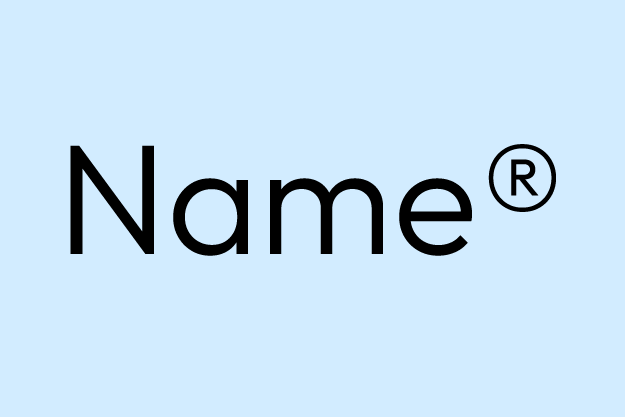October 2024
How to Choose the Perfect Clothing Store Name
Ester Bazzanella

Starting a clothing store is an exciting journey, and one of the first steps to building your brand is choosing a name that truly represents your business.
It may seem simple, but finding the perfect name for your fashion e-commerce store is often more challenging than you’d expect. After all, your store’s name is more than just a label – it’s the first impression customers will have of your store, and it plays a significant role in shaping your brand identity.
But don’t stress!
In this article we’ll give you some pointers to help you choose the perfect clothing store name.
Why Your Store Name Matters
Let’s start with the basics:
Why does your clothing store’s name matter so much?
The name is your brand’s first point of contact with customers. It sets expectations, conveys your store’s personality, and often provides insight into the kind of clothing you offer.
A great store name should be recognizable and make your brand unforgettable. A not-so-great one? Well, it might just get lost in the sea of competition.
Here’s what your name needs to do:
- Attract Attention: You want a name that stands out and grabs your potential customer’s attention at a glance.
- Resonate with Your Target Audience: Your name should appeal to the demographics you want to attract, whether it’s eco-conscious shoppers, trendy teens, or business professionals.
- Be Easy to Remember: The simpler the name, the more likely customers will remember it and return to your store.
So, how do you ensure your store name hits all these marks? Keep reading and find out!

1. Know Your Brand and Audience
Before brainstorming any name ideas, take a moment to define your brand.
Understanding what your business stands for and who your ideal customers are will guide you in choosing a name that resonates with them.
Consider the following:
What’s your brand’s style?
Is your store selling streetwear or formalwear? Do you focus on minimalist basics or activewear?
The type of clothing you sell should inform the tone of your name. For example, a luxury boutique might benefit from a sophisticated name like “Opal & Silk,” while a casual streetwear shop could go for something more playful like “The Street Spot.”
Who are your customers?
Think about your ideal customers.
Are they young, fashion-forward individuals who care about trends? Or are they eco-conscious shoppers who prioritize sustainability?
Tailoring your name to speak directly to your audience helps create an instant connection. A name like “EarthWear” immediately signals to eco-friendly shoppers that sustainability is a priority.
By understanding the essence of your store and its audience, you can create a name that aligns with both.
2. Be Memorable and Unique
There’s no shortage of online clothing stores, which means your name needs to be distinct to stand out. A good rule of thumb is to think of names that are easy to pronounce and spell but still creative enough to be memorable. Here are a few tips:
- Avoid Overused Words: Terms like “fashion,” “style,” or “boutique” might sound fitting, but they’re already in thousands of store names. To avoid blending in with the crowd, try using synonyms or unique combinations that convey the same message.
- Use Wordplay: Puns, alliteration, and rhyming can make a name catchier. For example, a children’s clothing store might opt for a playful name like “Kiddie Couture,” which not only sticks in customers’ minds but also reflects the nature of the products sold.
- Go for Simplicity: While you want your name to be unique, you don’t want it to be so complicated that customers can’t remember it. Shorter names like “Threadz” or “VogueWeave” are easier to recall and type into a search bar.
A great way to check if your name is memorable is to say it out loud. Can you imagine yourself saying it in conversation or recommending it to a friend? If it rolls off the tongue naturally, that’s a good sign!
3. Think About Your Online Presence
Since you’re launching an e-commerce store, you’ll need a name that works well in the online space. Consider these factors:
Domain Availability: Before you fall in love with a name, make sure the corresponding domain is available. You can easily check this with domain registration tools like GoDaddy or Namecheap. Ideally, your store’s name and domain should match to avoid confusion.
SEO Considerations: Your store name can play a small part in your search engine optimization (SEO) strategy. Including relevant keywords in your name can potentially help with ranking for certain searches. For instance, if you’re a vintage store, something like “Retro Racks” gives an SEO boost by using a descriptive keyword.
Social Media Handles: Just like domain names, you’ll need to check if your desired store name is available on social media platforms. Having the same or similar handles across platforms makes it easier for customers to find you. This is especially important if social selling is part of your store’s strategy.
4. Be Timeless (But Stay Open to Rebranding)
Trends come and go, but you want your store name to last. Avoid names that might feel outdated in a few years or are tied to short-term fads. Timeless names are those that can grow with your brand and evolve as fashion changes.
That said, don’t be afraid to rebrand down the road if you feel your original name no longer aligns with your business. Many successful brands have undergone name changes after realizing their original name didn’t resonate with their audience or reflect their evolving identity.
For example, “VintageFlip” could be a great name for a store initially focused on reselling second-hand clothing, but if the brand pivots to selling new, sustainably produced fashion, it might make sense to adopt a more fitting name like “EcoWear.”
5. Use a Name Generator for Inspiration
Feeling stuck?
Name generators can be a great way to spark creativity. Tools like Shopify’s Business Name Generator or Oberlo’s Name Generator allow you to input keywords and receive a list of possible names. You might not use a generated name exactly as it is, but it can certainly help you think of new ideas or directions to take your brainstorming.
Just make sure the generated name isn’t too generic and still aligns with your brand.
Personalization is key in the fashion e-commerce space!
6. Test Your Name with Real People
Once you’ve narrowed down a few options, test them out. Share your potential store names with friends, family, or even members of your target audience. Get their honest feedback.
Ask questions like:
What does the name make you think of?
Does it sound like a clothing store to you?
Would you shop at a store with this name?
Sometimes, a name that you love might not resonate the same way with others. Getting outside opinions helps you gauge whether the name effectively communicates your brand and appeals to your target audience.
7. Check for Legal Issues
It’s crucial to ensure that your chosen name doesn’t infringe on any existing trademarks. You wouldn’t want to invest in branding and marketing only to receive a cease-and-desist letter down the road. Do a thorough search to see if the name is trademarked by another business. You can check with your country’s trademark office, like the USPTO in the U.S. or the UK Intellectual Property Office in the U.K.
Final Thoughts
Choosing the right name for your clothing store is a strategic decision that will impact how your brand is perceived and remembered. By understanding your brand, keeping your audience in mind, and thinking long-term, you’ll be well on your way to landing a name that helps your store thrive in the crowded e-commerce space.
Take your time, and don’t rush the process.
After all, your store’s name is the foundation of your brand’s identity. It’s worth putting in the extra effort to get it right. So, go ahead, start brainstorming, test out your ideas, and get ready to introduce your clothing store to the world with a name that shines.
If you’re looking for ways to boost your online clothing store’s performance, check out our article of 9 essential key performance indicators for fashion e-commerce.








